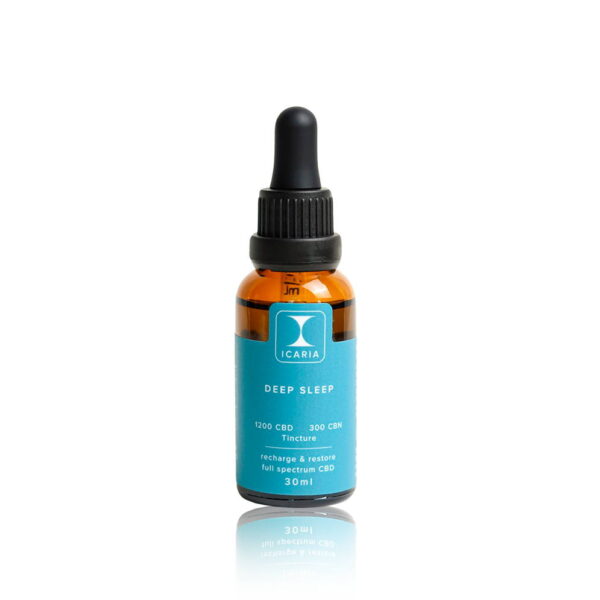As pet owners, we always strive to ensure the well-being of our furry companions. Whether it’s for alleviating anxiety, managing joint pain, or addressing seizures, the quest for natural remedies has led many to explore the potential benefits of CBD for dogs. CBD, short for cannabidiol, is a compound derived from the hemp plant known for its therapeutic properties. In recent years, its popularity has surged as a holistic approach to supporting overall wellness, and now, its potential for enhancing the quality of life for our canine friends is gaining attention. In this comprehensive guide, we’ll delve into the various aspects of CBD for dogs, exploring its types, efficacy for common ailments, dosing guidelines, and more.
Which Type of CBD is Better for Dogs?
When it comes to administering CBD to dogs, pet owners have a variety of options to choose from. Dog treats, CBD oil, and gummies are among the most popular choices. Each form comes with its own set of benefits and considerations.
- CBD treats for dogs are convenient and easy to administer, making them a favourite among pet owners. These treats are often infused with a specific dosage of CBD, ensuring accurate dosing and making them ideal for on-the-go use.
- CBD oil for dogs offers versatility and precision in dosing. It can be easily added to your pet’s food or administered directly into their mouth using a dropper. CBD oil allows for more customized dosing, making it suitable for dogs of all sizes and breeds.
- CBD gummies for dogs are another option worth considering. These chewable treats are not only tasty but also provide a discreet and enjoyable way to incorporate CBD into your pet’s routine. However, it’s essential to choose gummies specifically formulated for dogs to ensure they’re free from harmful ingredients.
CBD isolate vs full-spectrum CBD
When choosing between CBD isolate and full-spectrum CBD for dogs, consider your pet’s sensitivities and individual needs. CBD isolate contains pure CBD and may be preferable for dogs with sensitivities to other cannabinoids or THC. Full-spectrum CBD, on the other hand, contains a range of beneficial compounds from the hemp plant, potentially offering enhanced therapeutic benefits through the entourage effect. Consulting with your veterinarian can help determine the best option for your dog’s well-being.
Which carrier oil should you choose?
Both MCT coconut oil and pumpkin seed oil are suitable carrier oils for CBD intended for dogs. MCT coconut oil is easily digestible and offers potential health benefits such as antimicrobial and anti-inflammatory properties. Pumpkin seed oil is rich in antioxidants, vitamins, and minerals, supporting skin, coat, and immune health, with additional anti-inflammatory properties. When choosing between the two, consider your dog’s dietary needs and sensitivities. Some dogs may prefer pumpkin seed oil if they have sensitivities to coconut products. Ultimately, both oils offer benefits, so it’s essential to select the one that aligns best with your dog’s preferences and needs, and always consult with your veterinarian beforehand.
Ultimately, the best type of CBD for your dog depends on their preferences, the specific ailment being addressed, and your individual preferences as a pet owner.
How Does CBD for Dog Anxiety Work?
Anxiety is a common issue among dogs, often triggered by various factors such as separation, loud noises, or changes in routine. CBD has shown promise in helping alleviate anxiety in dogs by interacting with the endocannabinoid system, which plays a crucial role in regulating mood and stress responses.
CBD works by influencing the activity of receptors in the brain, such as serotonin receptors, which are associated with feelings of happiness and well-being. By modulating serotonin levels, CBD can help promote a sense of calmness and relaxation in anxious dogs without causing any psychoactive effects.
Additionally, CBD for dog anxiety may also help reduce excessive barking, destructive behaviours, and other symptoms associated with anxiety disorders, allowing your pet to feel more at ease in stressful situations.
How Does CBD for Dog Joint Pain Work?
As dogs age, they may experience joint pain and inflammation, resulting in mobility issues and discomfort. CBD has emerged as a promising natural remedy for managing joint pain in dogs, thanks to its anti-inflammatory and analgesic properties.
CBD interacts with receptors in the endocannabinoid system involved in pain perception and inflammation. By reducing inflammation and modulating pain signals, CBD can help alleviate discomfort associated with conditions such as arthritis, hip dysplasia, and other joint-related ailments.
Furthermore, CBD for dog joint pain may also promote joint health and mobility, allowing your furry friend to move more comfortably and enjoy a better quality of life.
How Does CBD for Dog Seizures Work?
Seizures are a distressing experience for both dogs and their owners, often requiring lifelong management. Traditional medications may come with side effects and limited effectiveness, prompting many pet owners to seek alternative treatments such as CBD.
CBD has shown promise in reducing the frequency and severity of seizures in dogs by interacting with receptors in the brain involved in controlling electrical activity. Studies have found that CBD can help stabilize neuronal activity, thereby reducing the likelihood of seizures occurring.
Additionally, CBD’s anti-inflammatory and neuroprotective properties may also help mitigate the underlying causes of seizures, providing comprehensive support for dogs with epilepsy and other seizure disorders.
How to Dose CBD Oil for Dogs?
Determining the correct dosage of CBD oil for your dog is essential to ensure optimal results and minimize the risk of adverse effects. The appropriate dosage depends on various factors, including your dog’s weight, age, health status, and the severity of the condition being treated.
As a general guideline, it’s recommended to start with a low dose of CBD oil and gradually increase it until the desired effects are achieved. A standard starting dose is 0.25 milligrams of CBD per pound of body weight, administered twice daily.
It’s essential to monitor your dog’s response to CBD and adjust the dosage as needed. Keep in mind that individual dogs may respond differently to CBD, so what works for one may not necessarily be effective for another.
Additionally, always consult with your veterinarian before starting your dog on a CBD regimen, especially if they are currently taking any medications or have underlying health issues.
Conclusion
CBD for dogs offers a natural and holistic approach to supporting their overall health and well-being. Whether it’s for managing anxiety, alleviating joint pain, or reducing seizures, CBD has shown promise in providing relief for a variety of common ailments affecting our canine companions.
With a range of CBD products available, including treats, oils, and gummies specifically formulated for dogs, pet owners have plenty of options to choose from. However, it’s essential to consult with your veterinarian and carefully consider your dog’s individual needs and preferences before starting them on a CBD regimen.
By understanding how CBD works and how to properly dose it for your dog, you can help ensure they receive the maximum benefit from this natural supplement. With its potential to improve the quality of life for our beloved pets, CBD for dogs is undoubtedly a valuable addition to any wellness routine.







